Content marketing is one of the most powerful tools small businesses can use to build their brand, engage with their audience, and drive sales. By creating and distributing valuable content, businesses can establish authority in their industry and foster long-term relationships with customers. In this article, we’ll explore how to create an effective content marketing strategy for small businesses, with practical tips for content creation, distribution, and engagement.
Contents:
- What is Content Marketing?
- Why Content Marketing is Important for Small Businesses
- Setting Goals for Your Content Marketing Strategy
- Creating High-Quality Content
- Choosing the Right Platforms for Content Distribution
- Engaging Your Audience Through Content
- Measuring and Optimizing Your Content Strategy
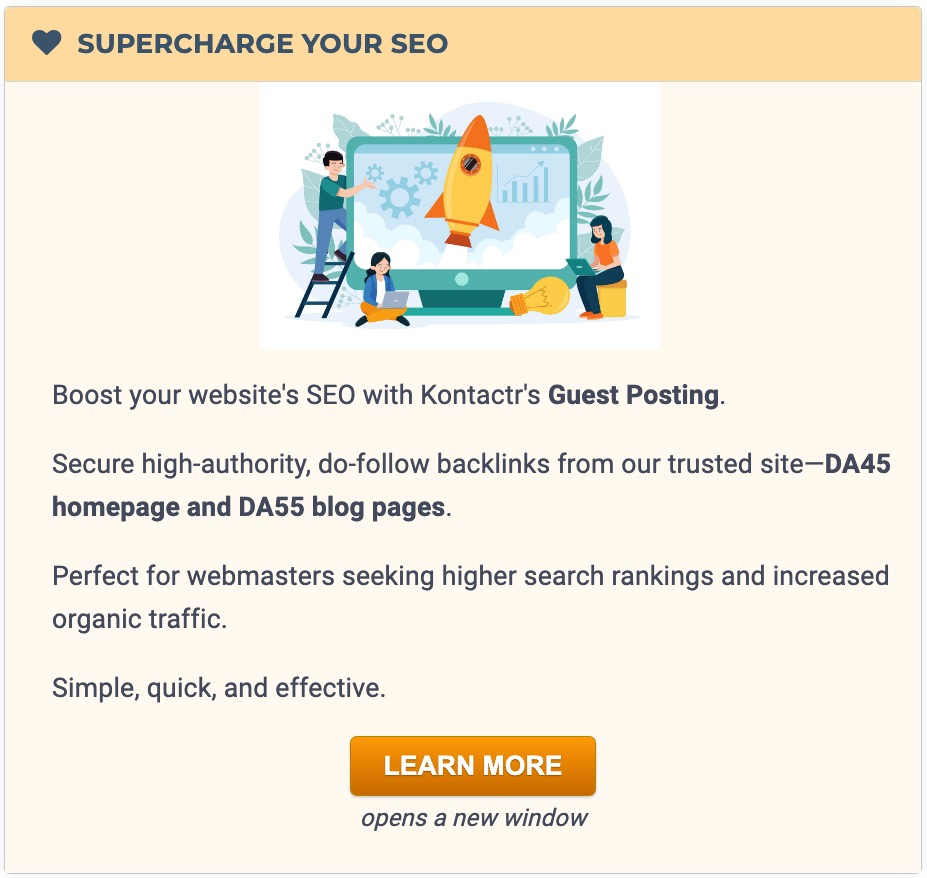
1. What is Content Marketing?

Content marketing involves creating and sharing valuable, relevant content with the goal of attracting and engaging a target audience. Unlike traditional advertising, which focuses on direct promotion, content marketing seeks to build trust with potential customers by providing them with useful information, entertainment, or inspiration.
Examples of Content Marketing
- Blog posts: Informative articles that address the pain points or interests of your target audience.
- Social media posts: Engaging content shared on platforms like Facebook, Instagram, LinkedIn, or Twitter.
- Videos: Educational or promotional videos that highlight your products or services.
- Email newsletters: Regularly sent emails that provide value to your subscribers and nurture leads.
- Infographics: Visual content that makes complex information easy to digest.
2. Why Content Marketing is Important for Small Businesses

For small businesses, content marketing can be a game-changer. Unlike paid advertising, which often requires significant budgets, content marketing allows small businesses to compete with larger companies by offering valuable information that speaks to their audience’s needs. It helps to:
- Build brand awareness: Content marketing helps businesses get their name out there by sharing knowledge, advice, or news related to their industry.
- Establish authority: Consistently producing high-quality content positions your business as a thought leader in your niche.
- Engage and nurture customers: Content helps to create meaningful connections with your audience, building loyalty and trust.
- Drive organic traffic: Well-optimized content can drive traffic to your website through organic search, social media, and email.
3. Setting Goals for Your Content Marketing Strategy

Before diving into content creation, it’s essential to define clear goals for your content marketing strategy. Your goals should align with your broader business objectives, and could include:
- Increasing brand awareness: If you’re just starting out, your focus might be on making your brand more visible to potential customers.
- Generating leads: You might aim to use content to collect email addresses or phone numbers from prospects who are interested in your offerings.
- Driving website traffic: A key goal might be to attract more visitors to your site through search engines or social media.
- Boosting customer engagement: You can use content to start conversations with your audience and keep them coming back for more.
- Increasing sales: Content marketing can nurture leads and help guide them through the buyer’s journey until they are ready to make a purchase.
4. Creating High-Quality Content

Creating high-quality, valuable content is at the heart of any successful content marketing strategy. Here are a few tips to help you produce content that resonates with your audience:
- Know your audience: Understanding your audience’s needs, pain points, and preferences is key to creating relevant content that speaks to them directly.
- Focus on value: Offer content that solves a problem, answers a question, or provides new insights. Avoid being overly promotional—focus on building trust first.
- Use various content formats: Diversify your content by using different formats like blog posts, videos, infographics, podcasts, and social media updates to appeal to different learning styles.
- Be consistent: Consistency is key in content marketing. Create an editorial calendar to plan and schedule your content over time.
- Optimize for SEO: Use relevant keywords and optimize your content for search engines so it’s more likely to be found by people searching for topics related to your business.
5. Choosing the Right Platforms for Content Distribution

Creating great content is just the first step. To maximize its impact, you need to distribute it on the right platforms where your audience spends their time. Here are a few options:
- Social media: Platforms like Facebook, Instagram, LinkedIn, and Twitter are great for sharing content and engaging with your audience in real-time.
- Blog: A regularly updated blog on your website is an excellent way to share valuable information with your audience and improve your SEO.
- Email marketing: Email newsletters allow you to deliver content directly to your audience’s inbox, making it a more personal form of communication.
- Video platforms: Platforms like YouTube, Vimeo, and even TikTok allow you to reach users through engaging video content.
- Podcasts: Podcasting can be a great way to connect with users who prefer audio content. This format is especially popular for interviews, discussions, and educational content.
6. Engaging Your Audience Through Content

Content marketing is not just about pushing content out—it’s also about creating a two-way conversation with your audience. Here are some ways to boost engagement:
- Encourage comments: Invite your audience to share their thoughts or experiences in the comment section of your blog or social media posts.
- Use calls-to-action (CTAs): Add CTAs to your content, encouraging readers to take action, such as subscribing to your newsletter, sharing the content, or making a purchase.
- Engage on social media: Respond to comments, share user-generated content, and interact with followers to build stronger relationships with your audience.
- Host webinars or live streams: These formats allow you to connect with your audience in real time and answer their questions directly.
7. Measuring and Optimizing Your Content Strategy

To ensure your content marketing strategy is effective, it’s important to track performance and optimize as needed. Key metrics to track include:
- Website traffic: Use tools like Google Analytics to track how much traffic your content is driving to your website. Look at metrics such as page views, bounce rates, and time spent on page to assess content effectiveness.
- Engagement rates: Monitor engagement metrics such as likes, shares, comments, and clicks on social media or blog posts to determine how well your content resonates with your audience.
- Lead generation: If one of your goals is to generate leads, track the number of sign-ups, form submissions, or other conversions that occur as a result of your content.
- SEO performance: Use SEO tools to track the search engine rankings of your content, monitor keyword performance, and assess how well your content is driving organic traffic.
- Customer feedback: Pay attention to what customers say in comments, reviews, or surveys about your content. Their feedback can help you understand what’s working and what needs improvement.
Optimizing Your Content
Once you’ve gathered data, use it to refine your content strategy. You may need to adjust the types of content you create, the platforms you use for distribution, or the frequency of your posts based on what works best for your audience. Experiment with different content formats, lengths, and posting times to find the most effective approach.
Conclusion
Creating an effective content marketing strategy is essential for small businesses looking to build brand awareness, engage their audience, and drive growth. By understanding your audience, setting clear goals, producing high-quality content, and distributing it across the right platforms, you can build a successful content marketing program that helps your business thrive.
Remember, consistency and engagement are key to long-term success in content marketing. Regularly measure your content’s performance and optimize your strategy to ensure you’re providing value to your audience while achieving your business goals.

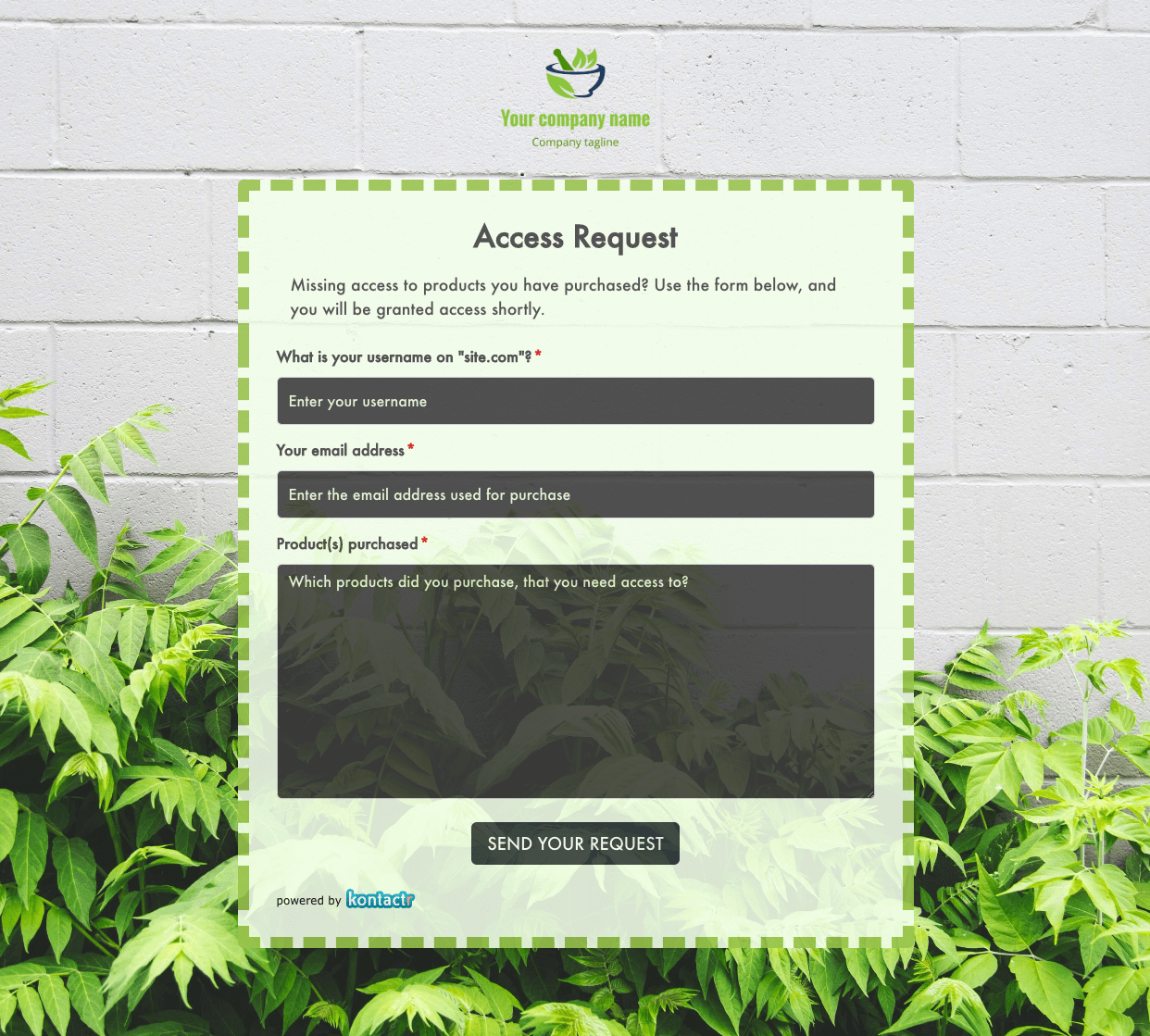 Access Request Form
Access Request Form
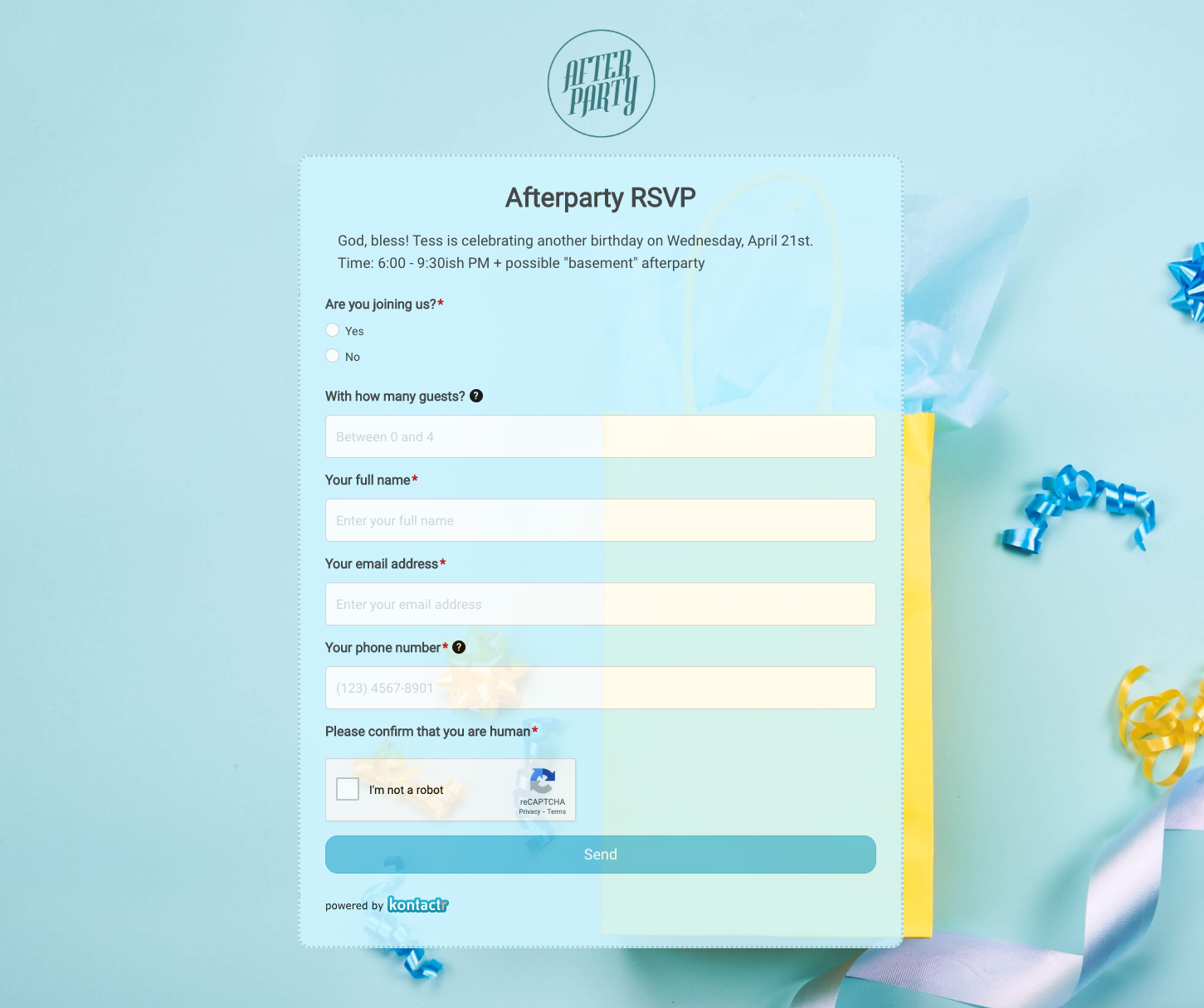 Afterparty RSVP Form
Afterparty RSVP Form
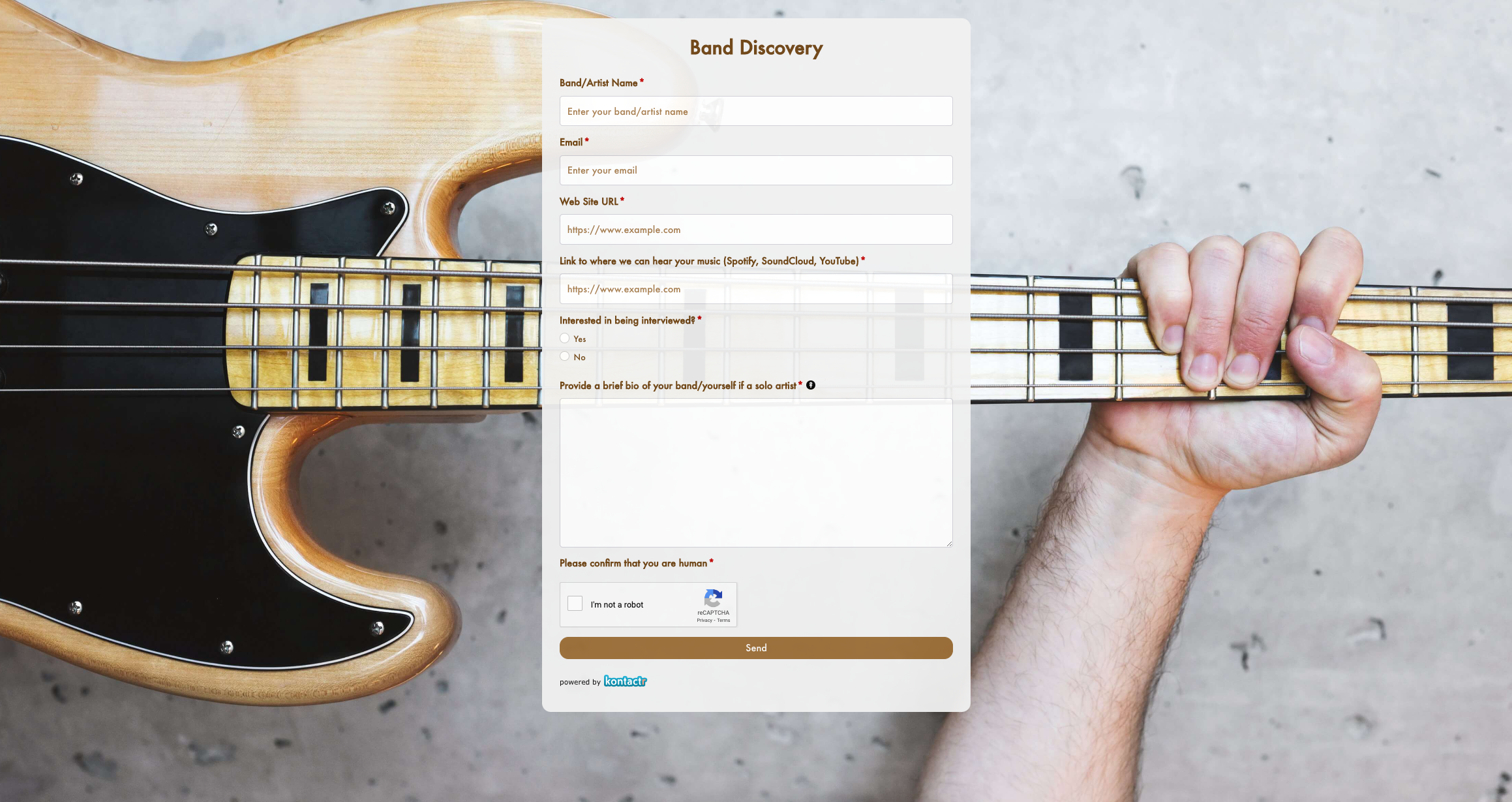 Band Discovery Form
Band Discovery Form
 Book a room Form
Book a room Form
 Booking Enquiries Form
Booking Enquiries Form
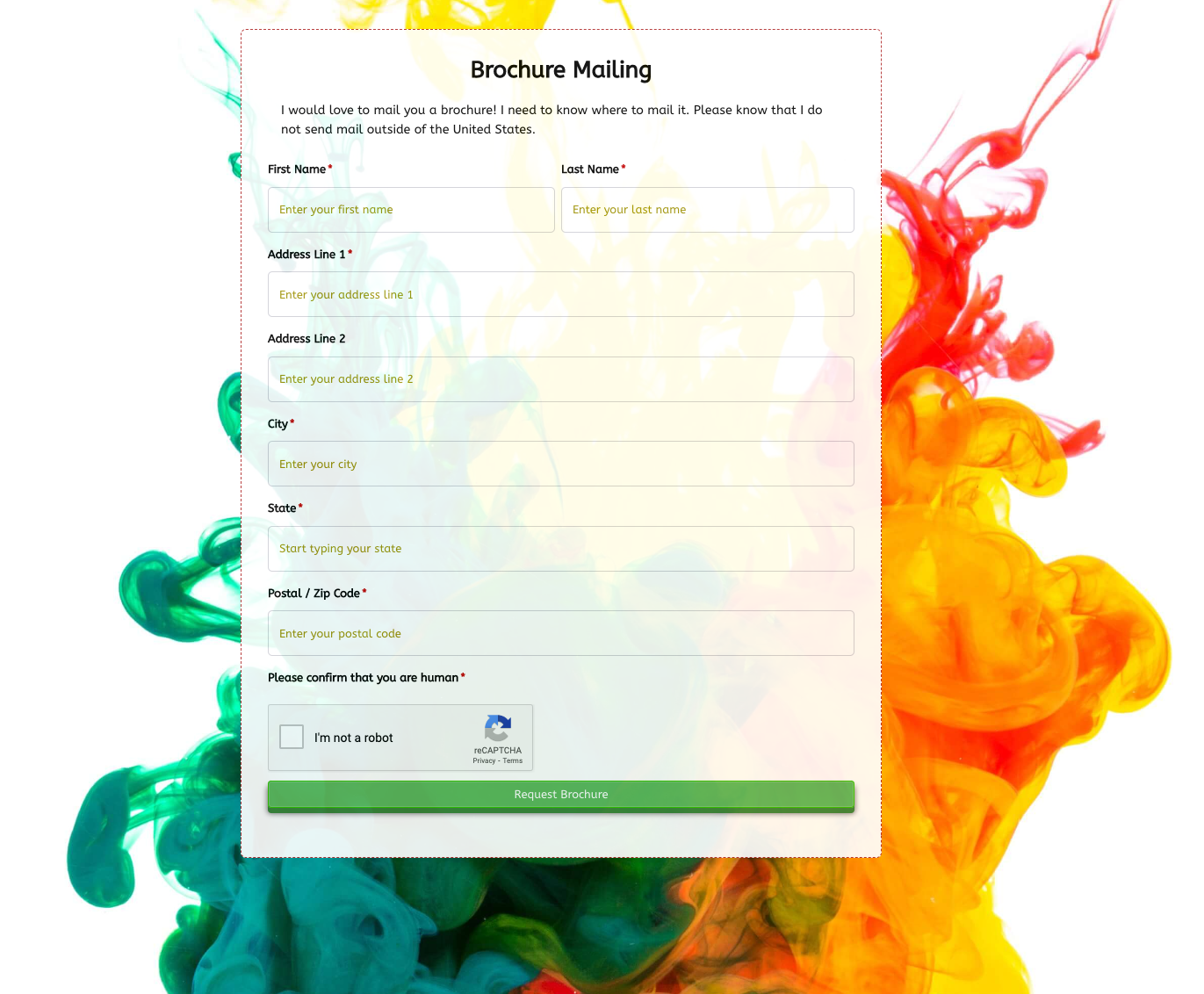 Brochure Mailing Form
Brochure Mailing Form
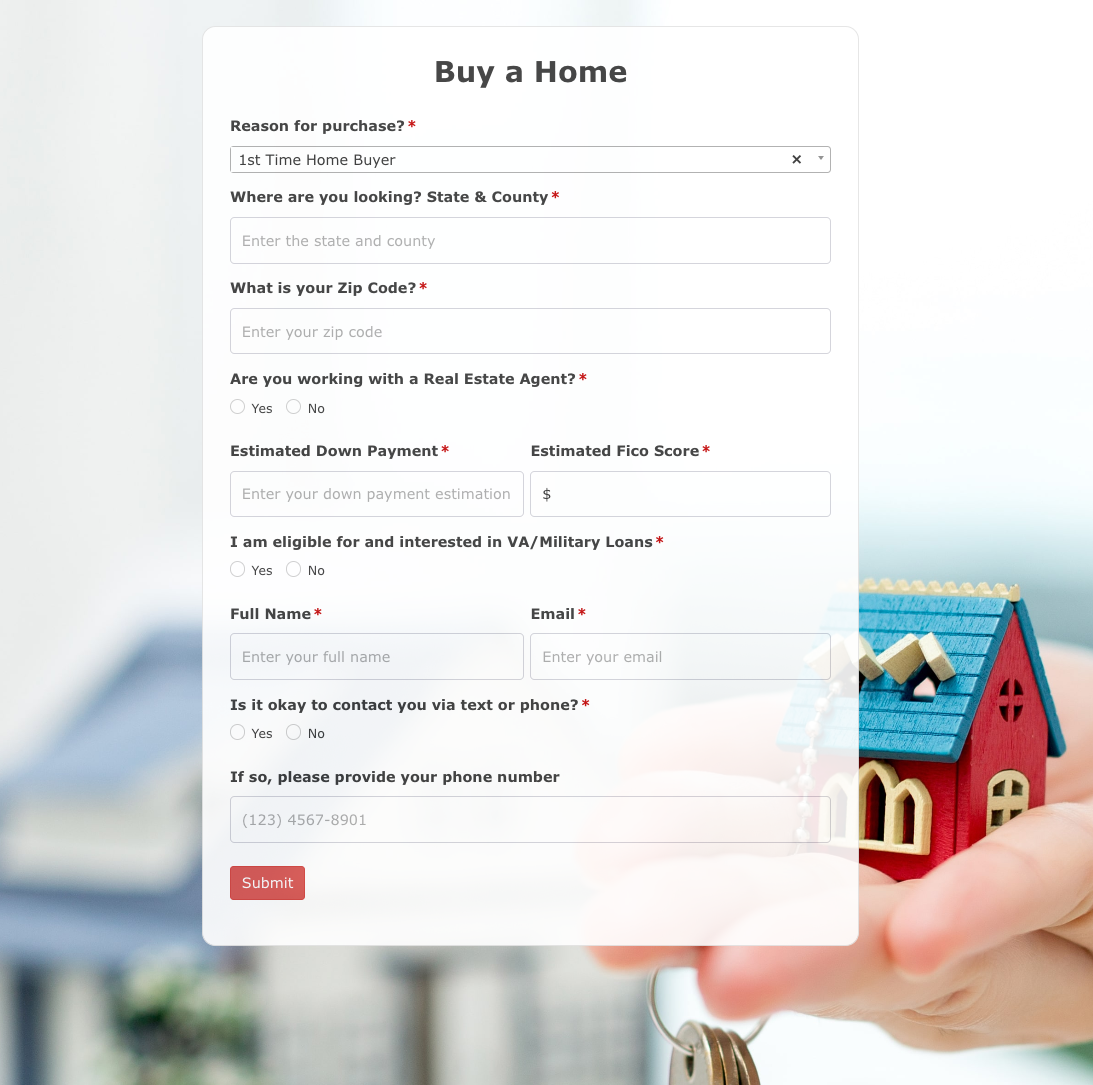 Buy a Home Form
Buy a Home Form
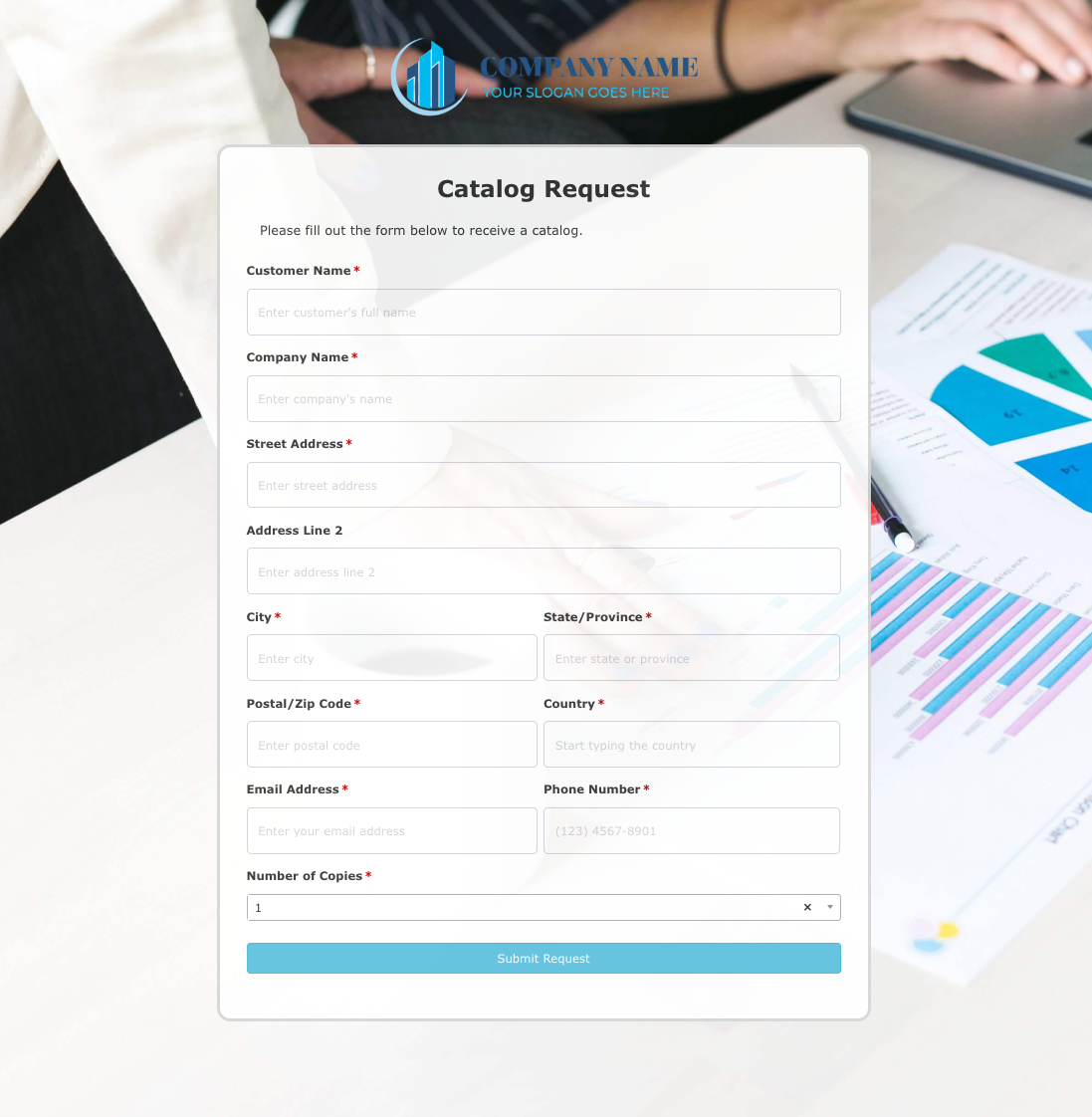 Catalog Request Form
Catalog Request Form
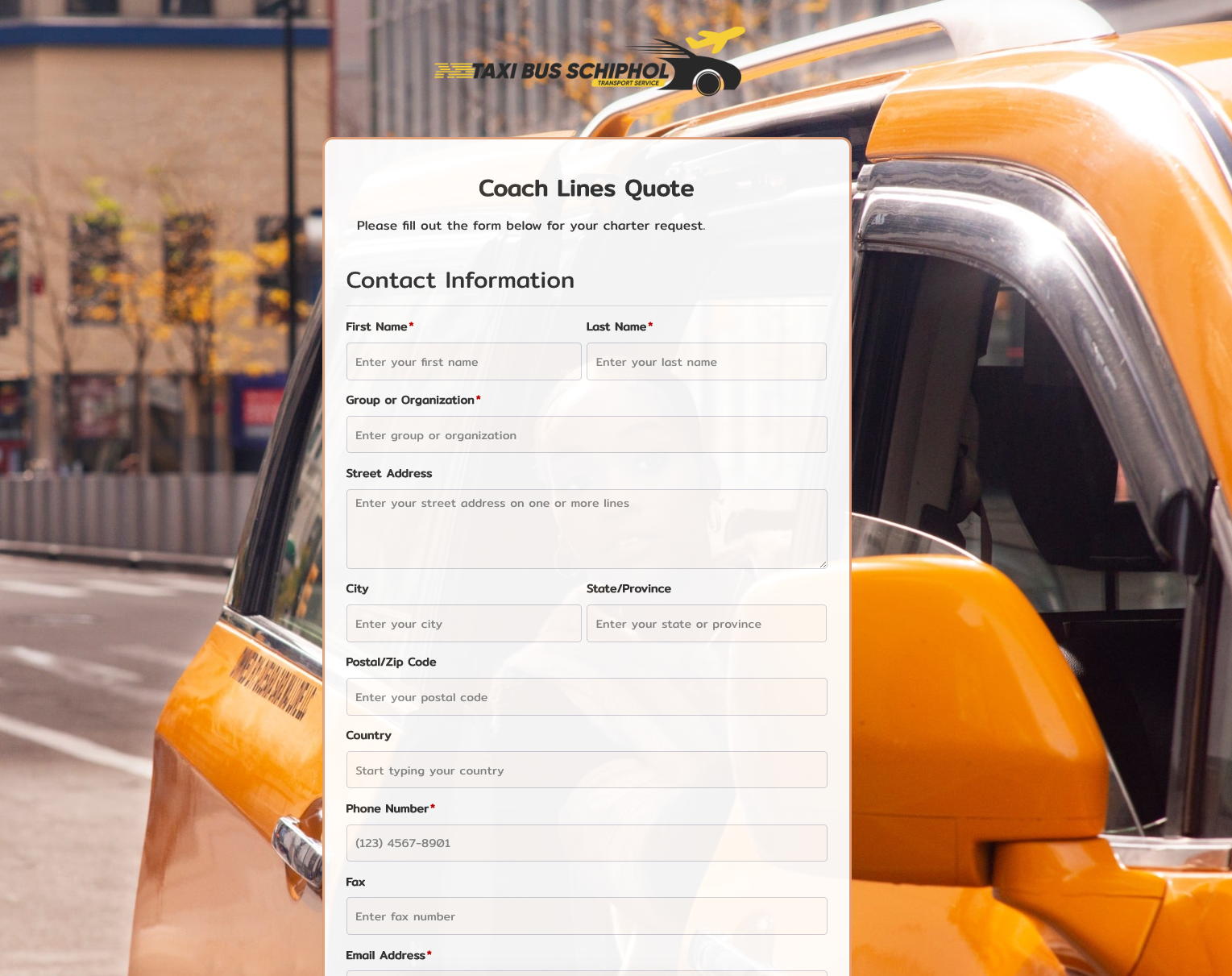 Coach Lines Quote Form
Coach Lines Quote Form
 Contact Us Form
Contact Us Form
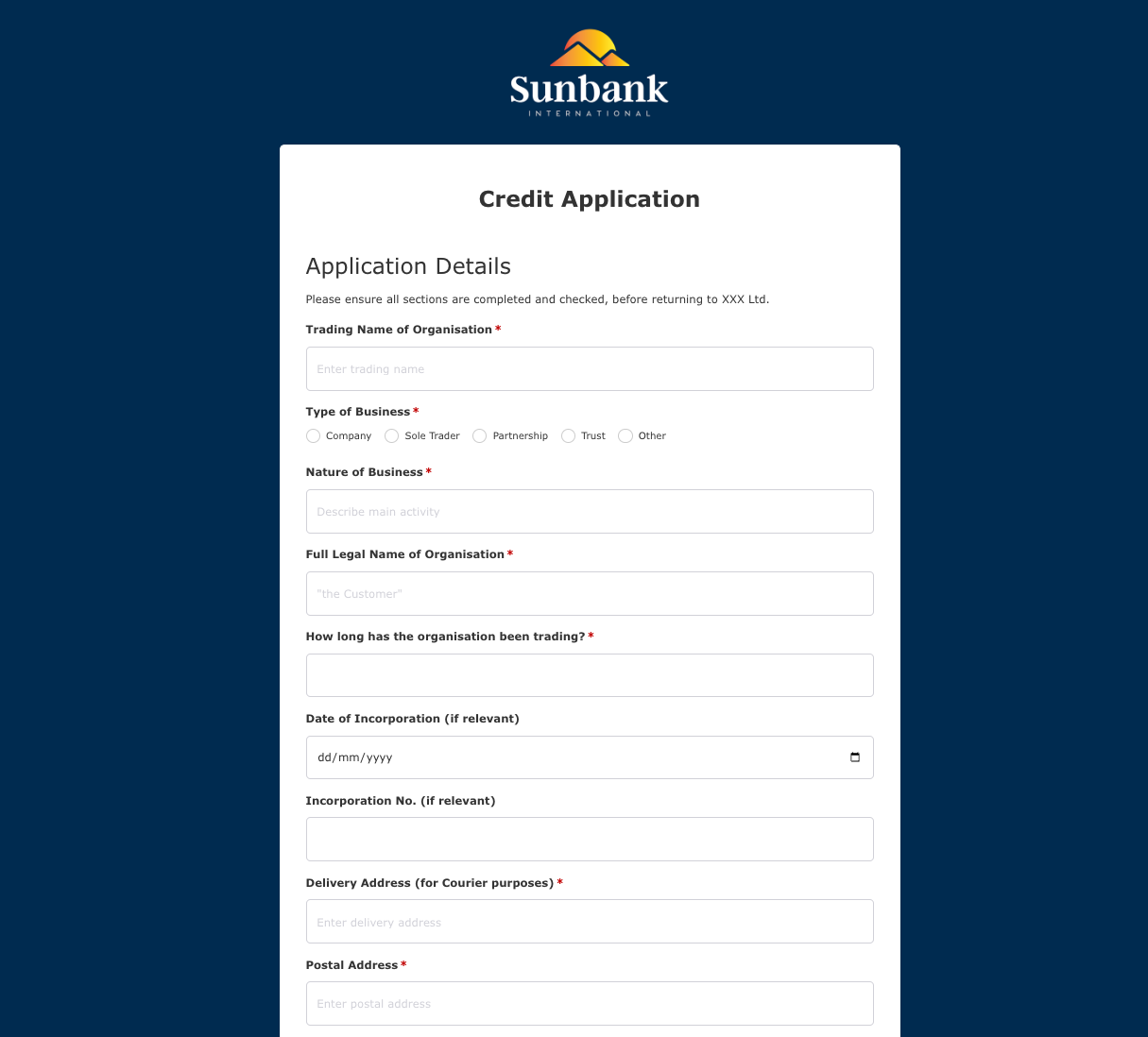 Credit Application Form
Credit Application Form
 Drop me a line Form
Drop me a line Form
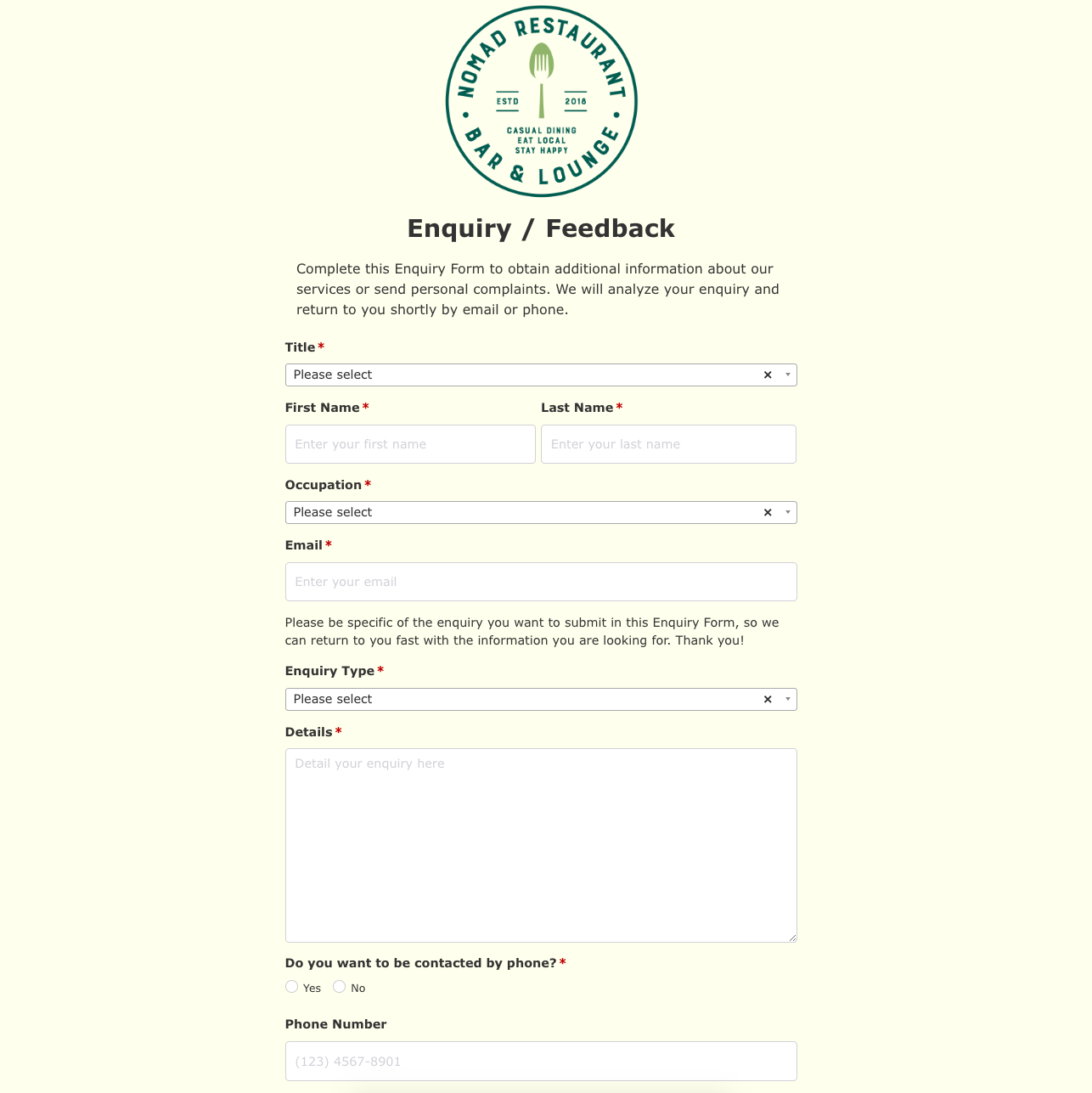 Enquiry / Feedback Form
Enquiry / Feedback Form
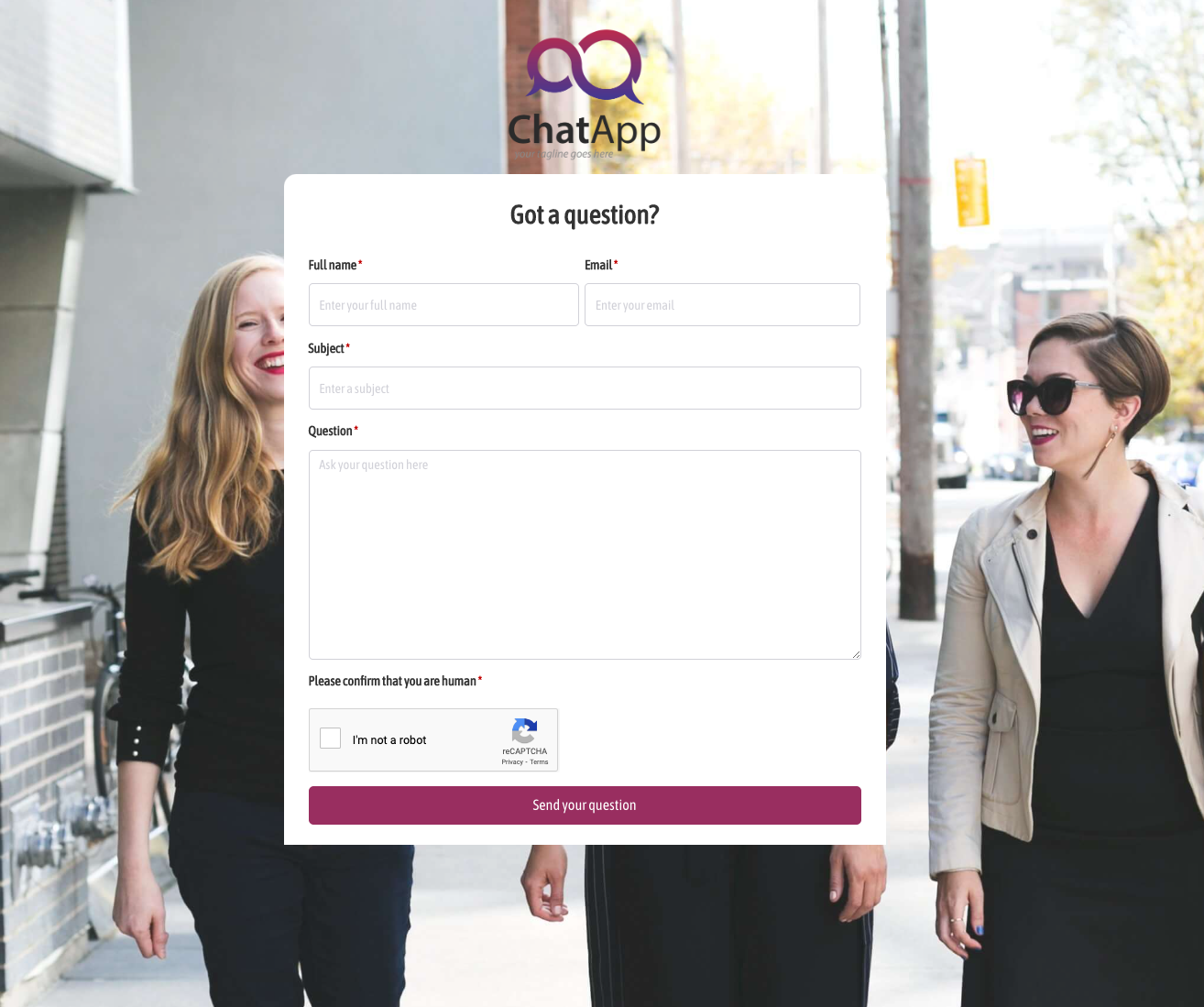 Got a question? Form
Got a question? Form
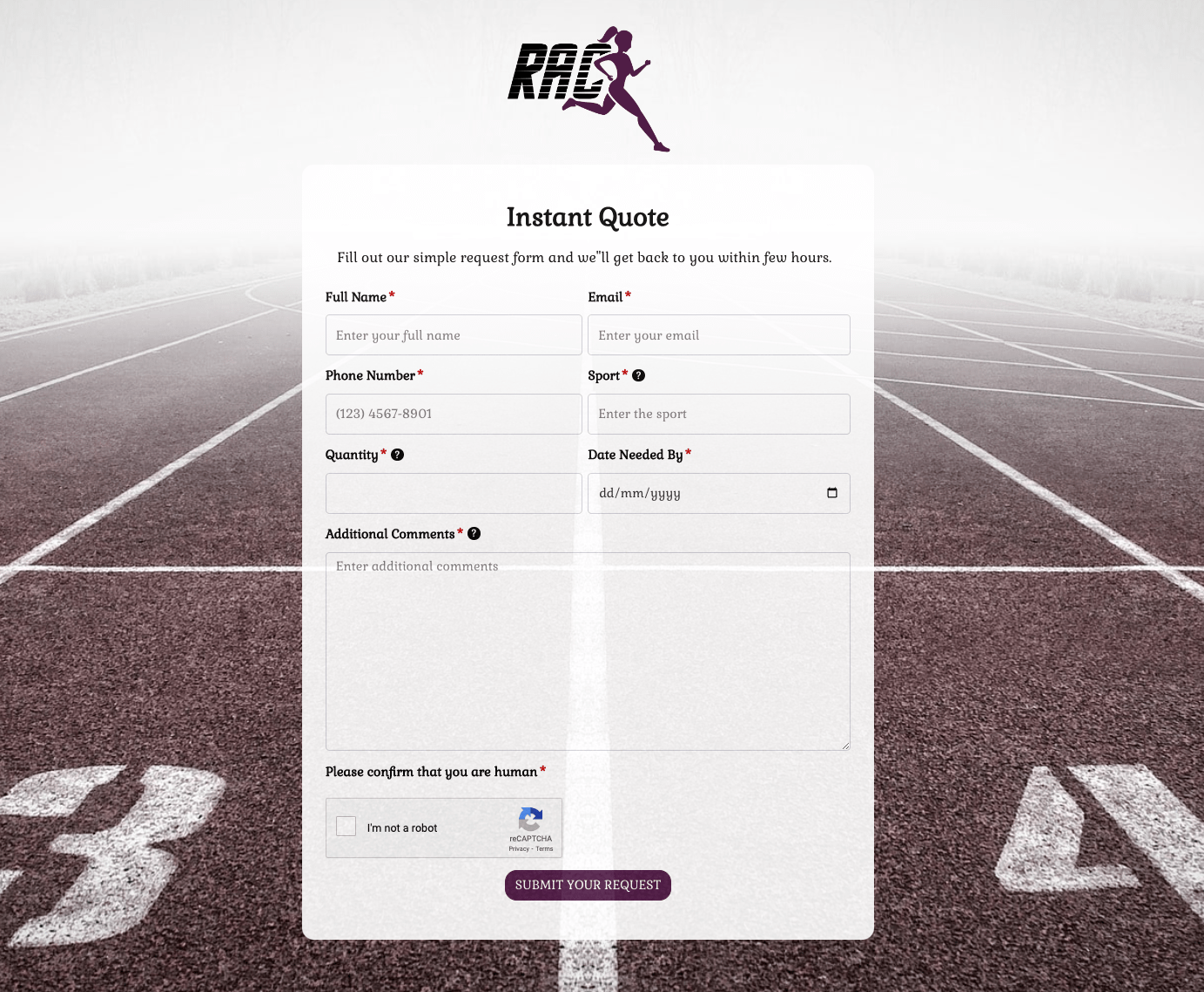 Instant Quote Form
Instant Quote Form
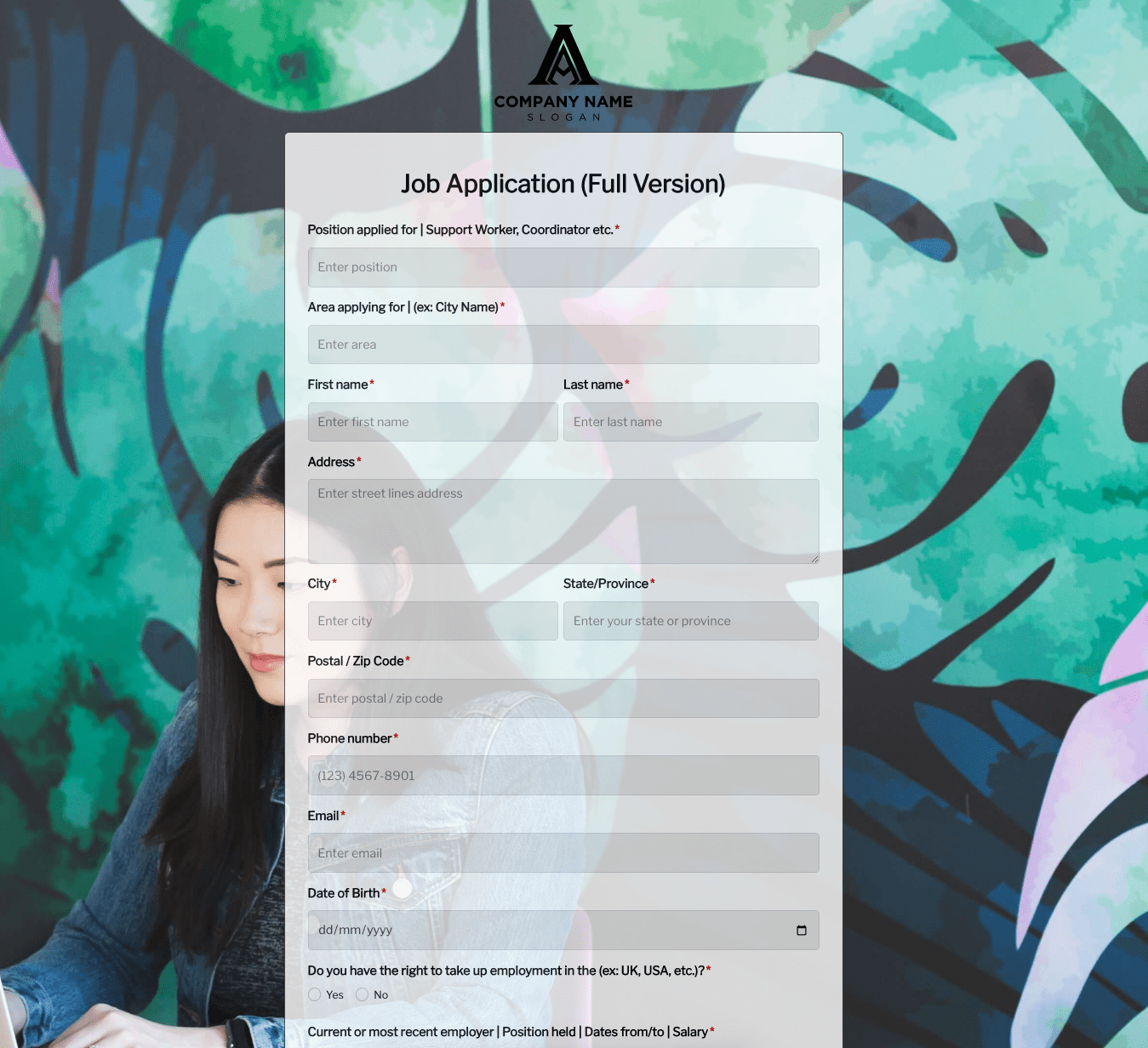 Job Application Form
Job Application Form
 Language & Literacy Lab Form
Language & Literacy Lab Form
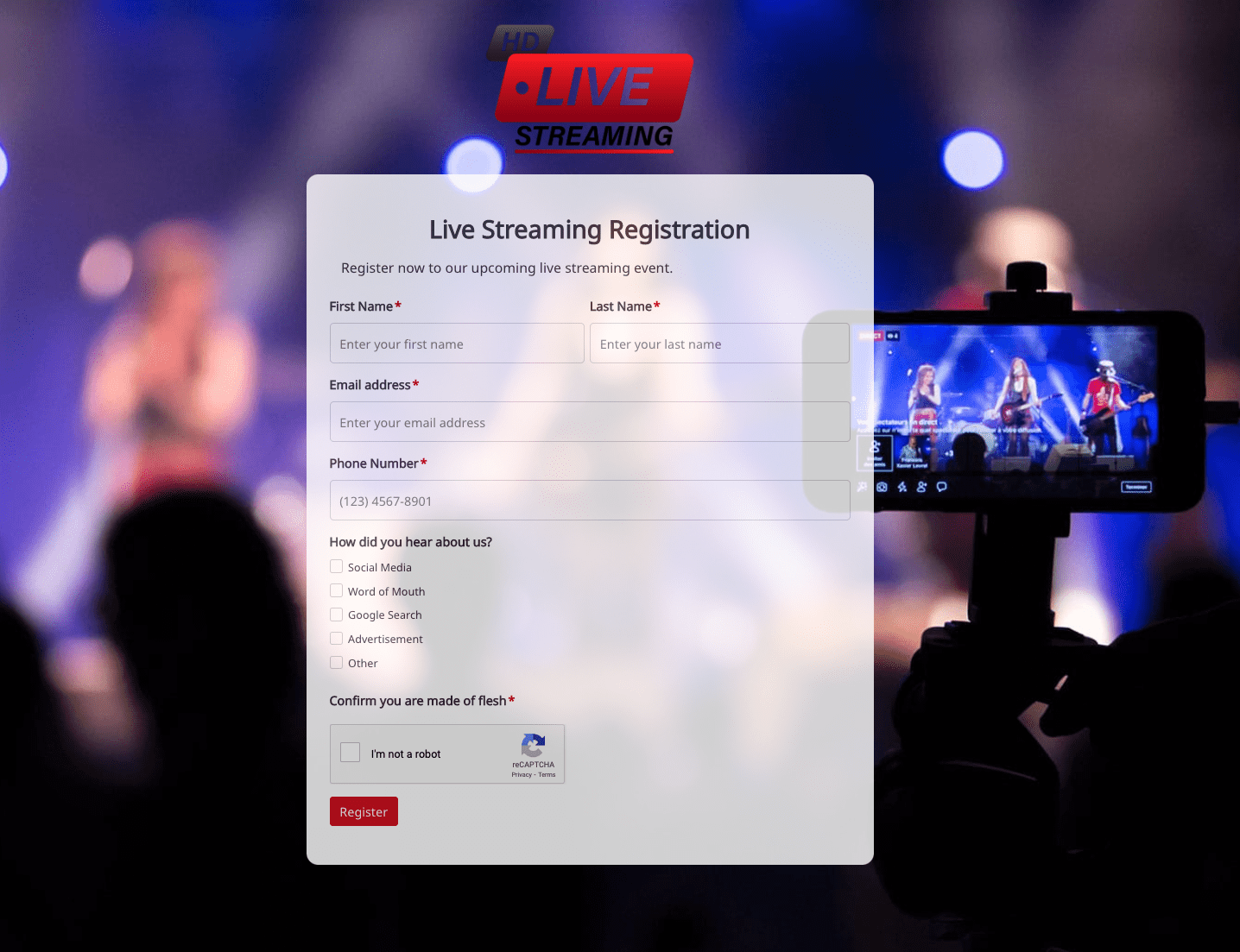 Live Streaming Registration Form
Live Streaming Registration Form
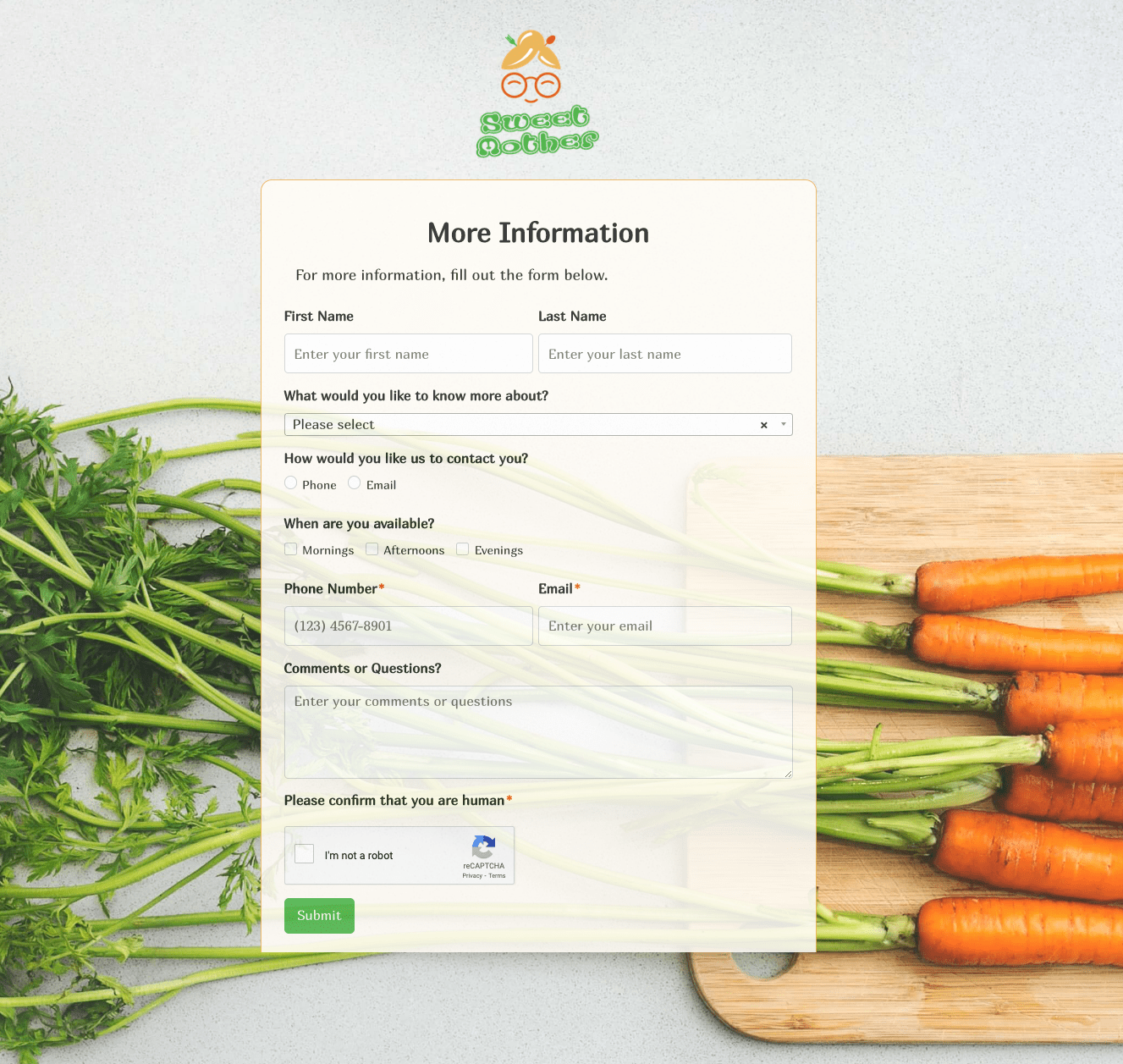 More Information Form
More Information Form
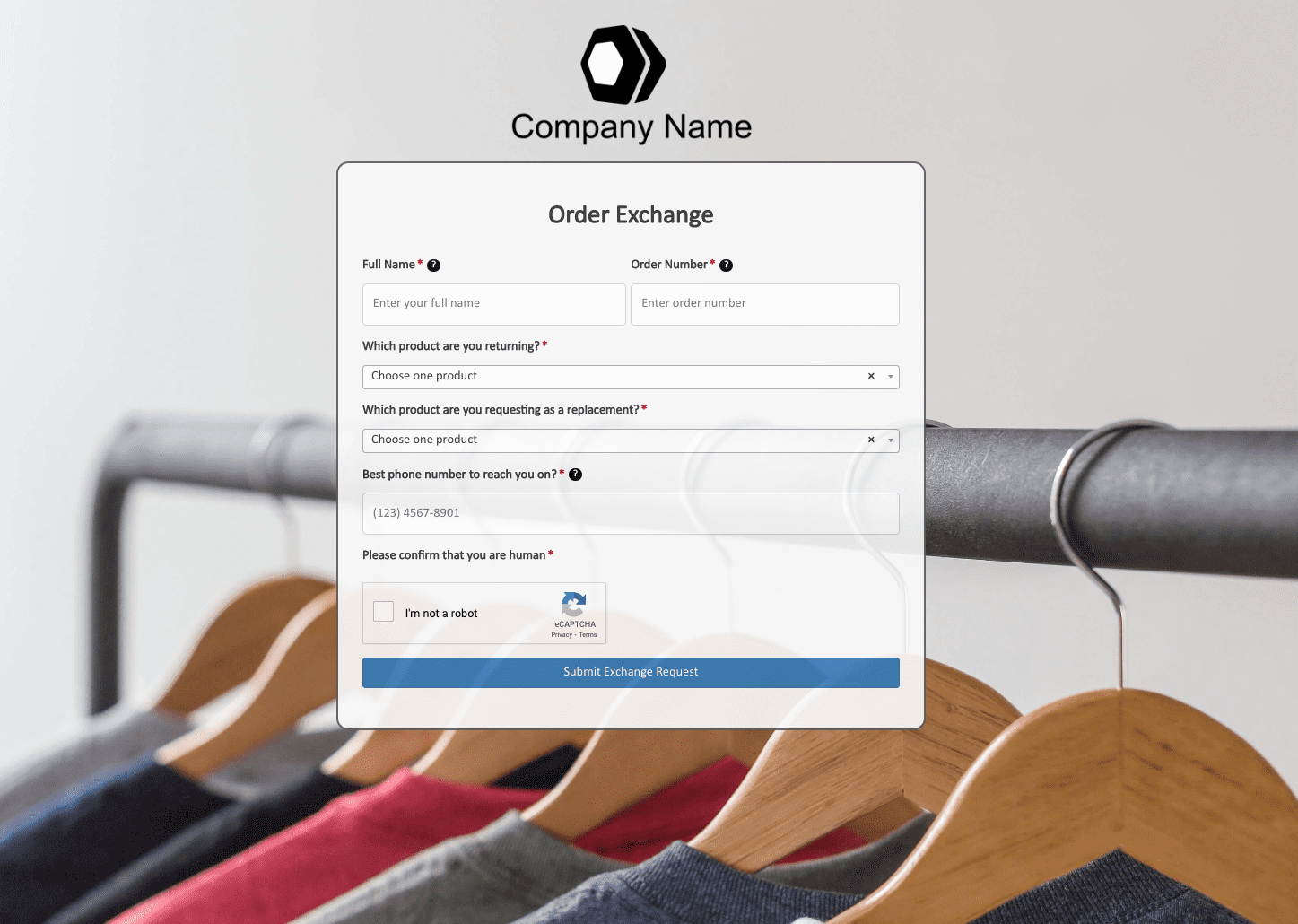 Order Exchange Form
Order Exchange Form
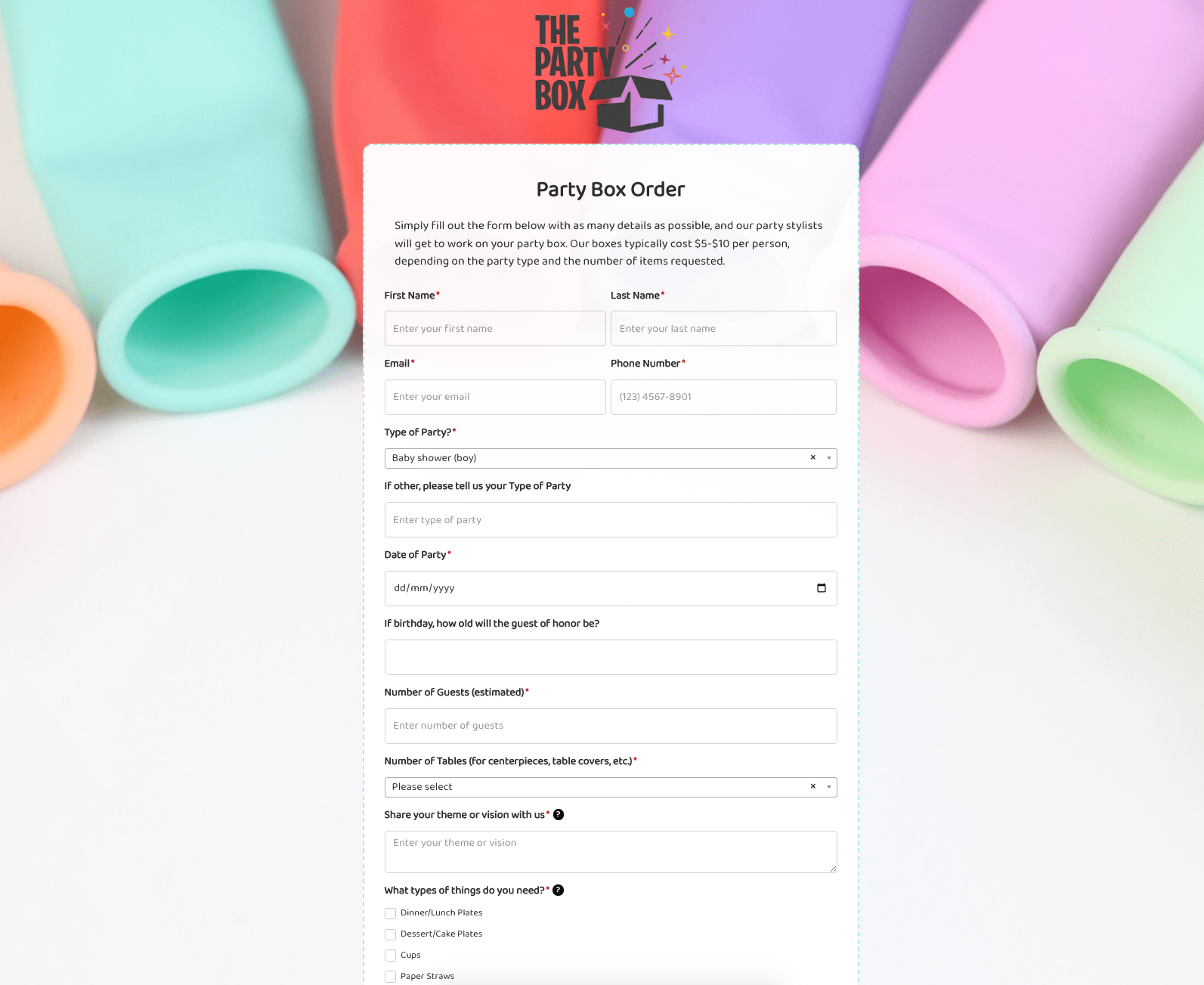 Party Box Order Form
Party Box Order Form
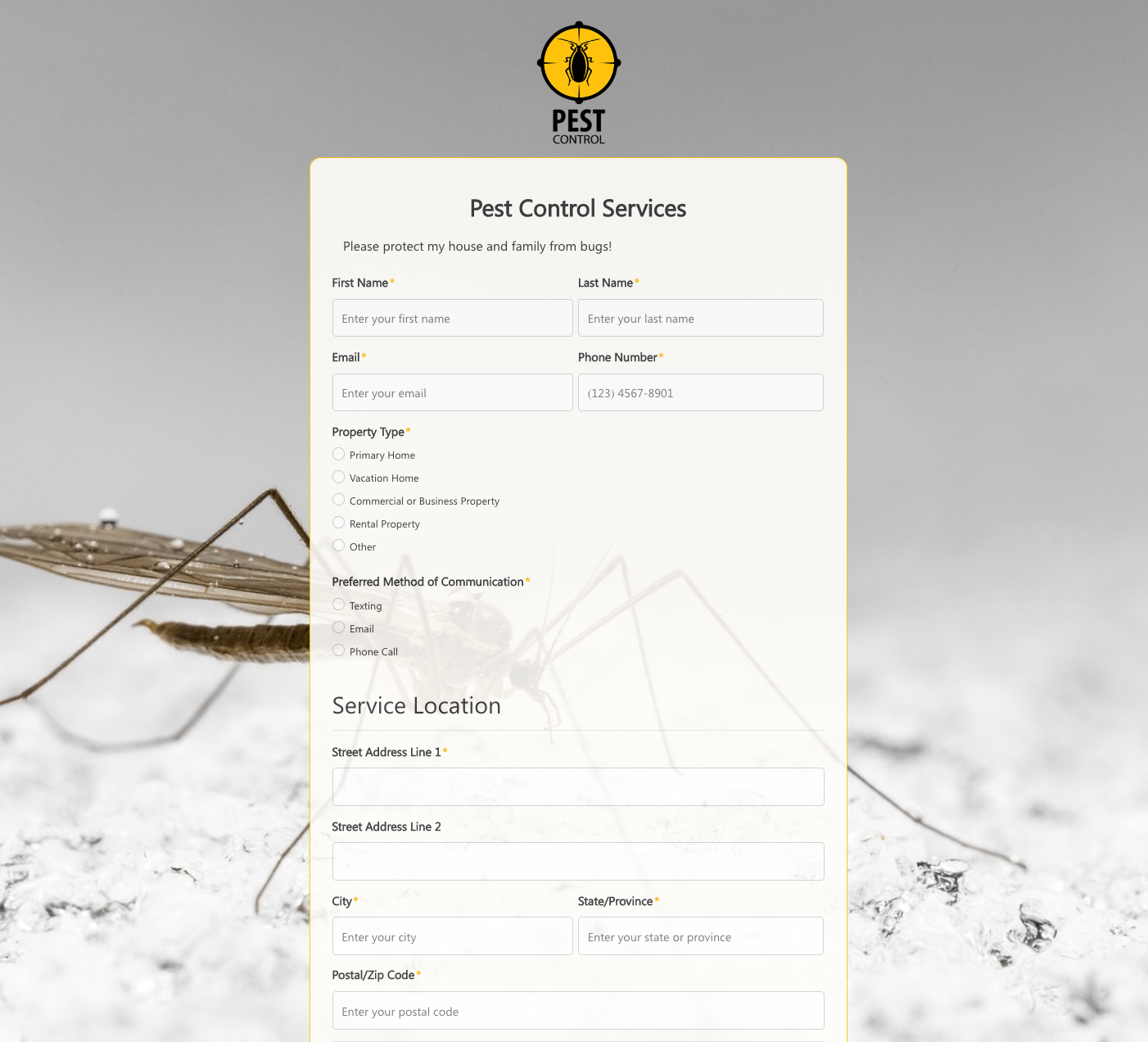 Pest Control Services Form
Pest Control Services Form
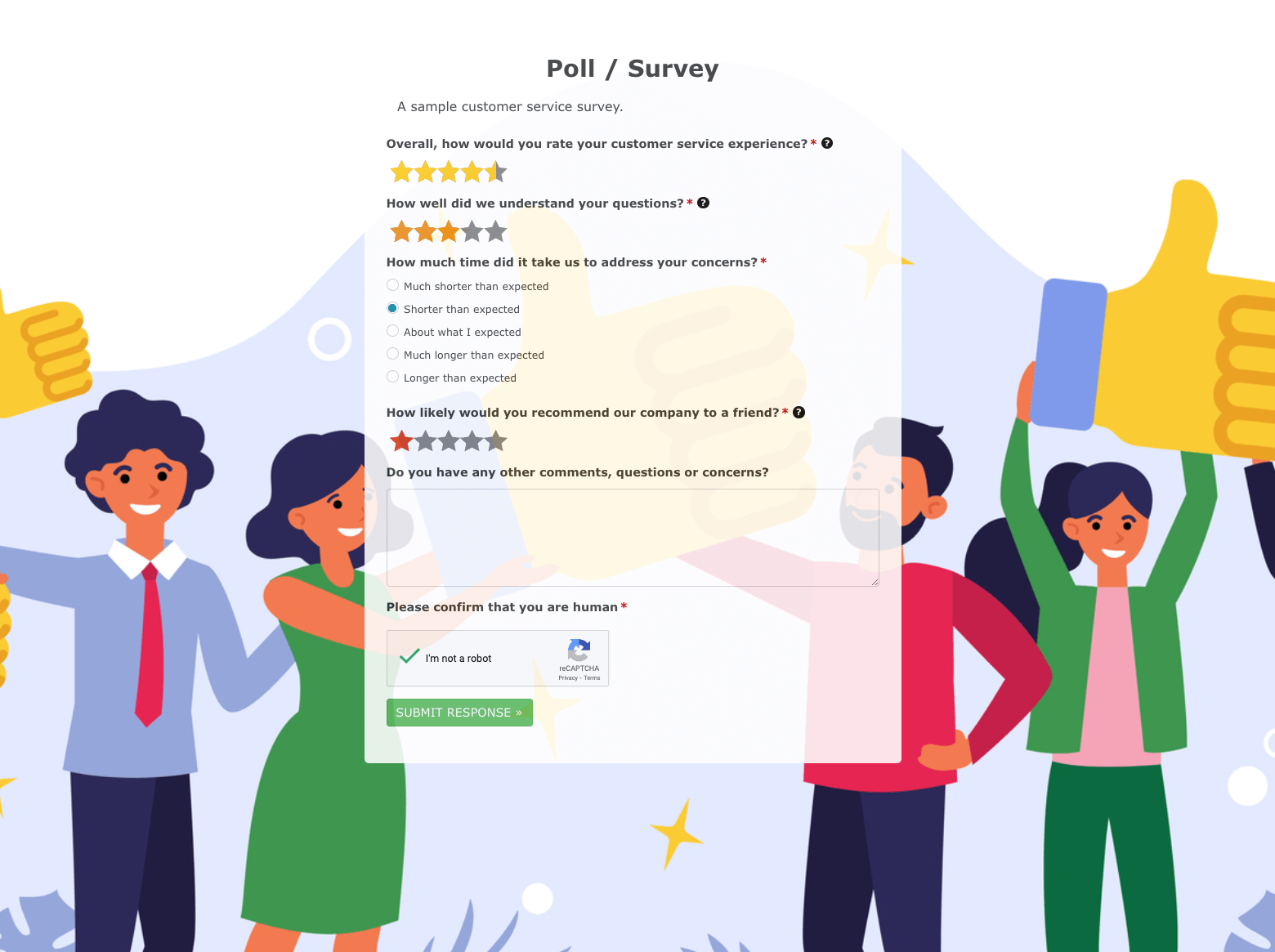 Poll / Survey Form
Poll / Survey Form
 Receive Ebook Form
Receive Ebook Form
 Refinance Mortgage Form
Refinance Mortgage Form
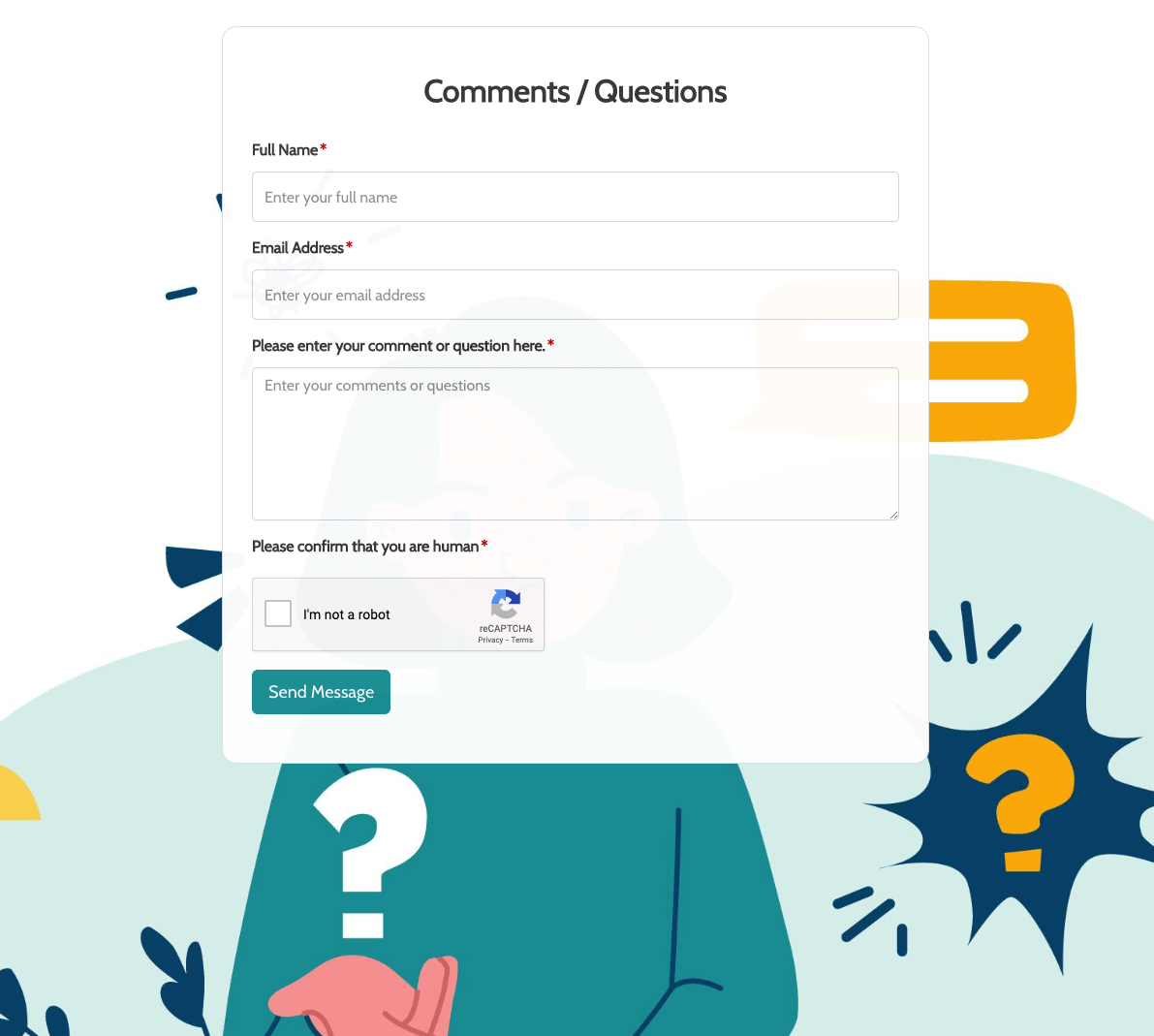 Remarks / Questions Form
Remarks / Questions Form
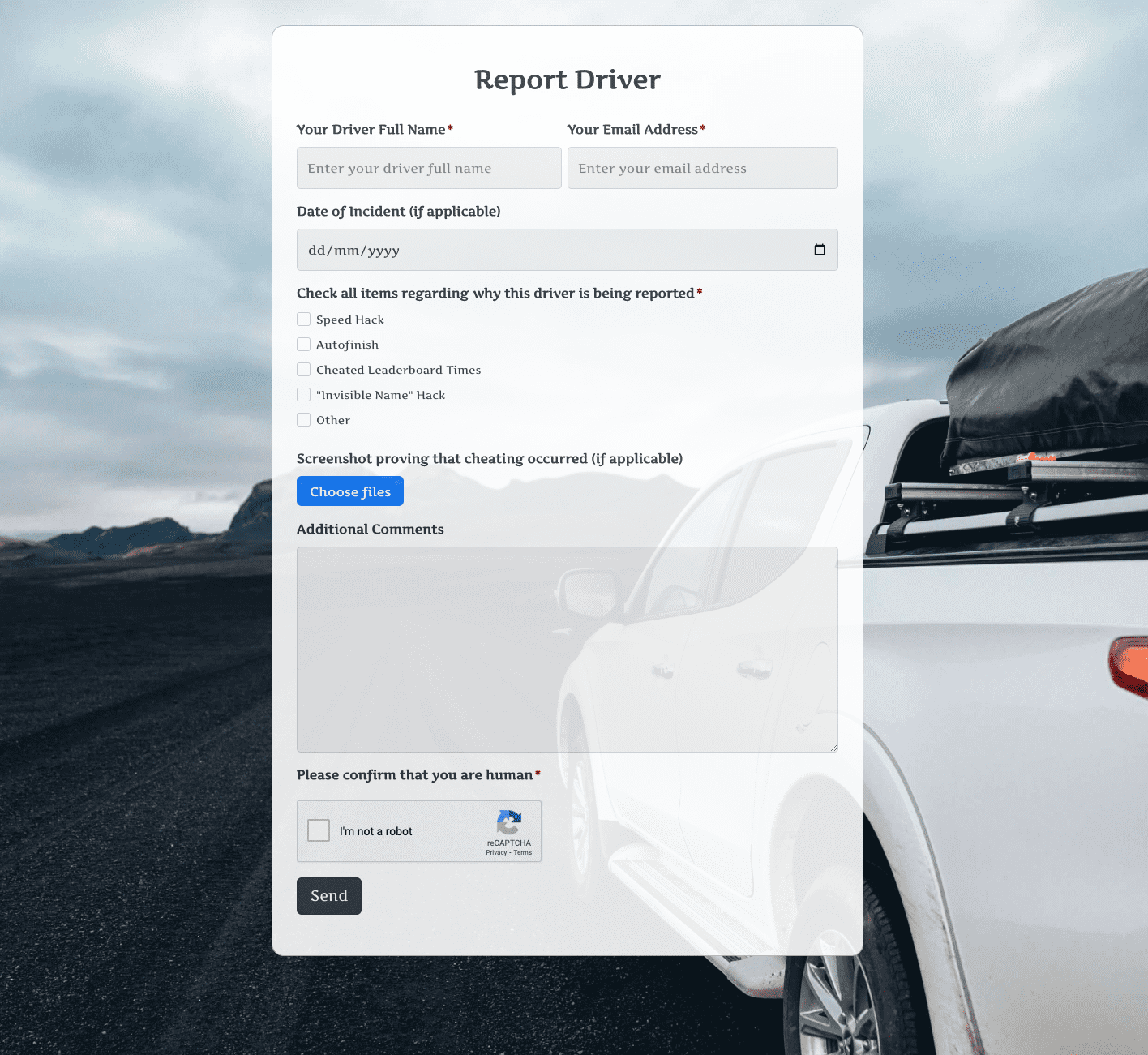 Report Driver Form
Report Driver Form
 Retreat Information Form
Retreat Information Form
 Service Enquiry Form
Service Enquiry Form
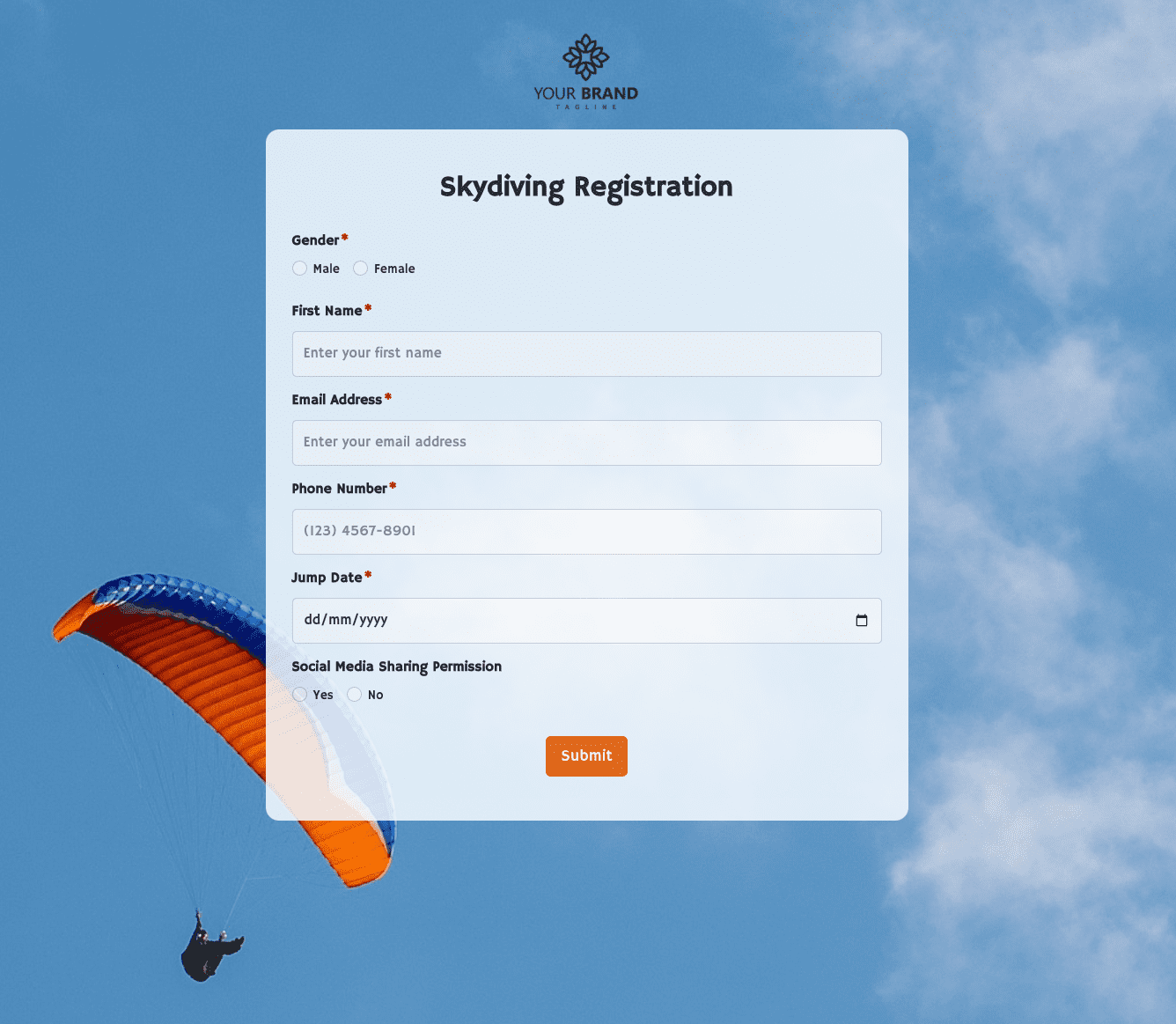 Skydiving Registration Form
Skydiving Registration Form
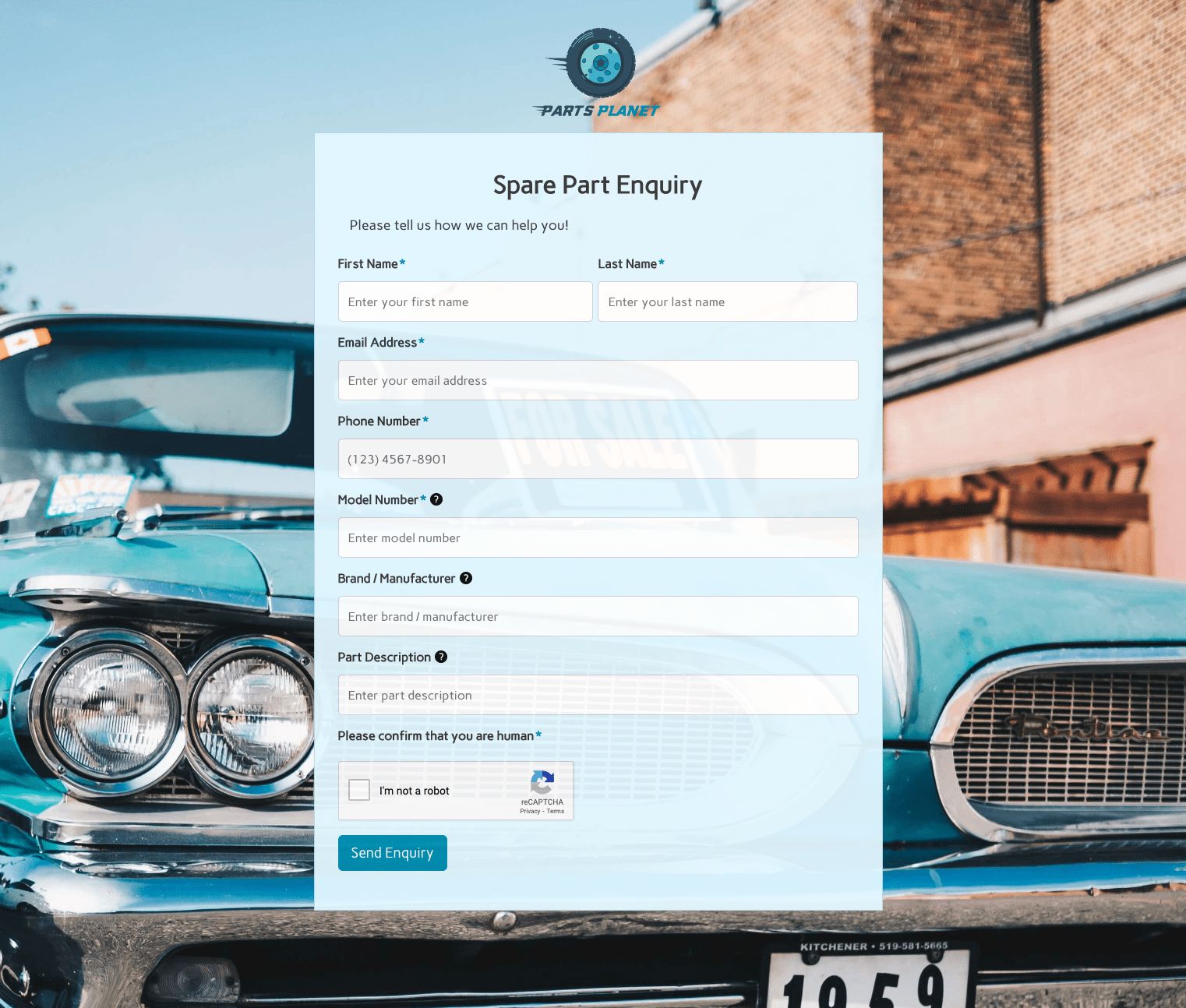 Spare Part Enquiry Form
Spare Part Enquiry Form
 Staff Application Form
Staff Application Form
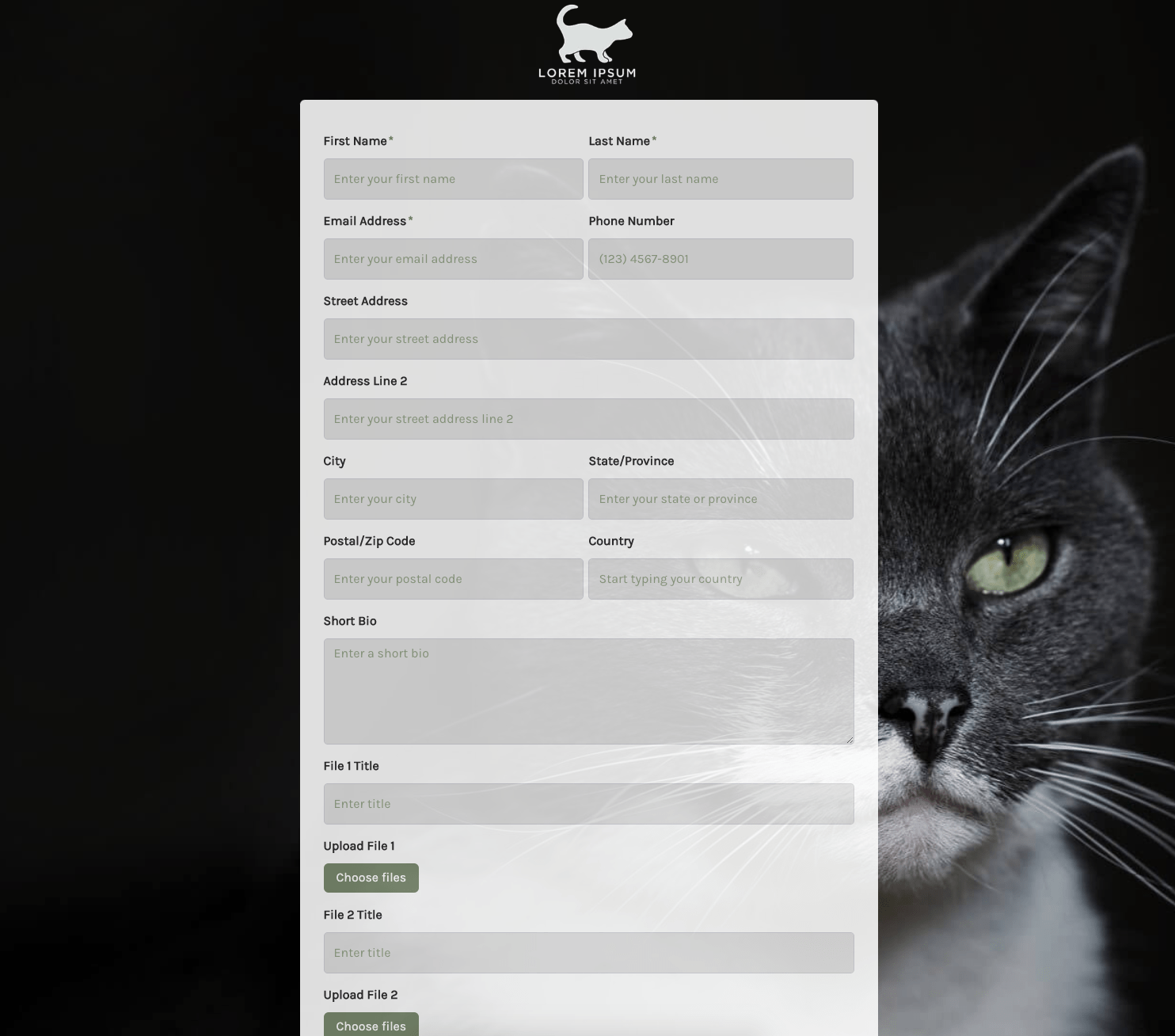 Submission Form
Submission Form
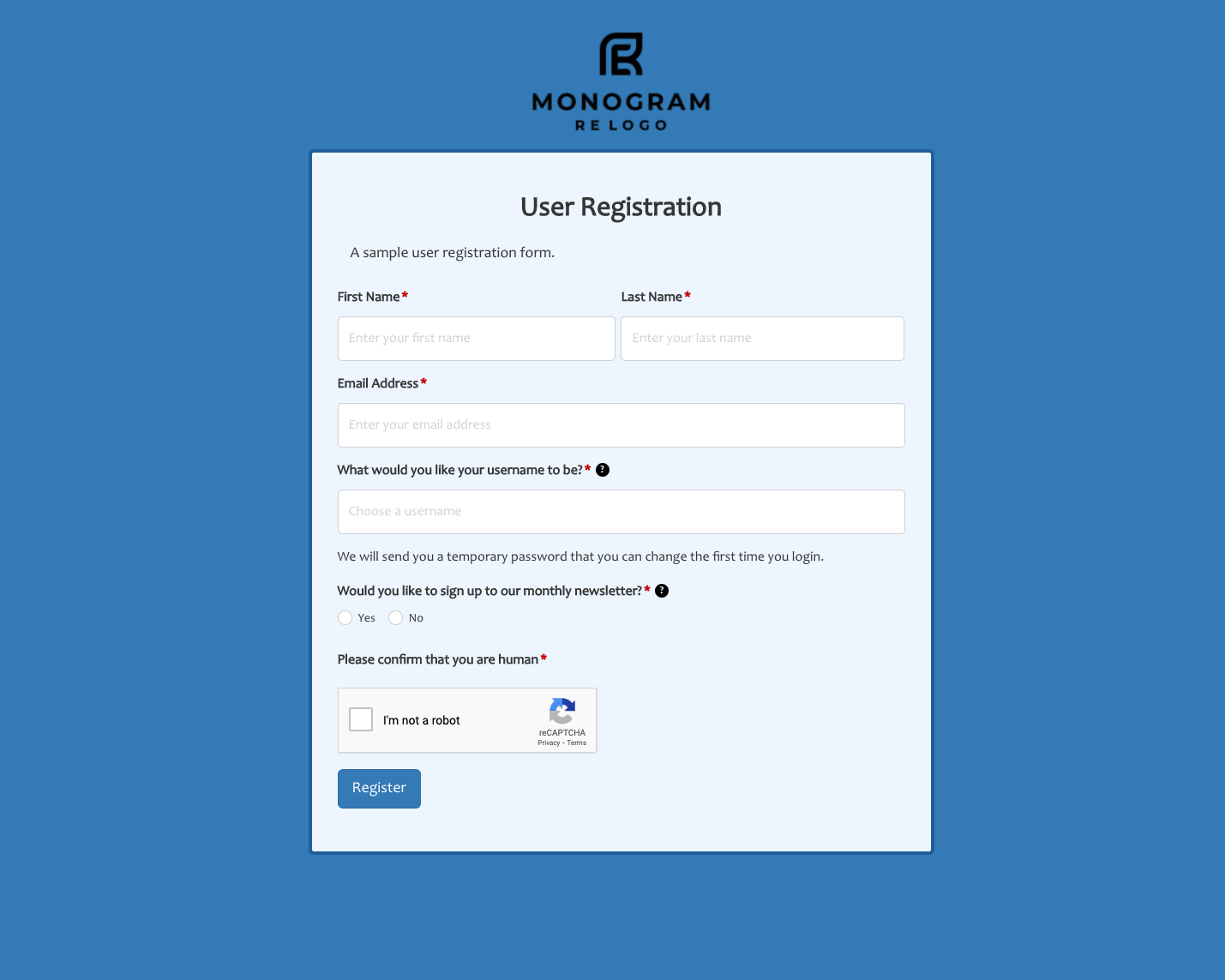 User Registration Form
User Registration Form
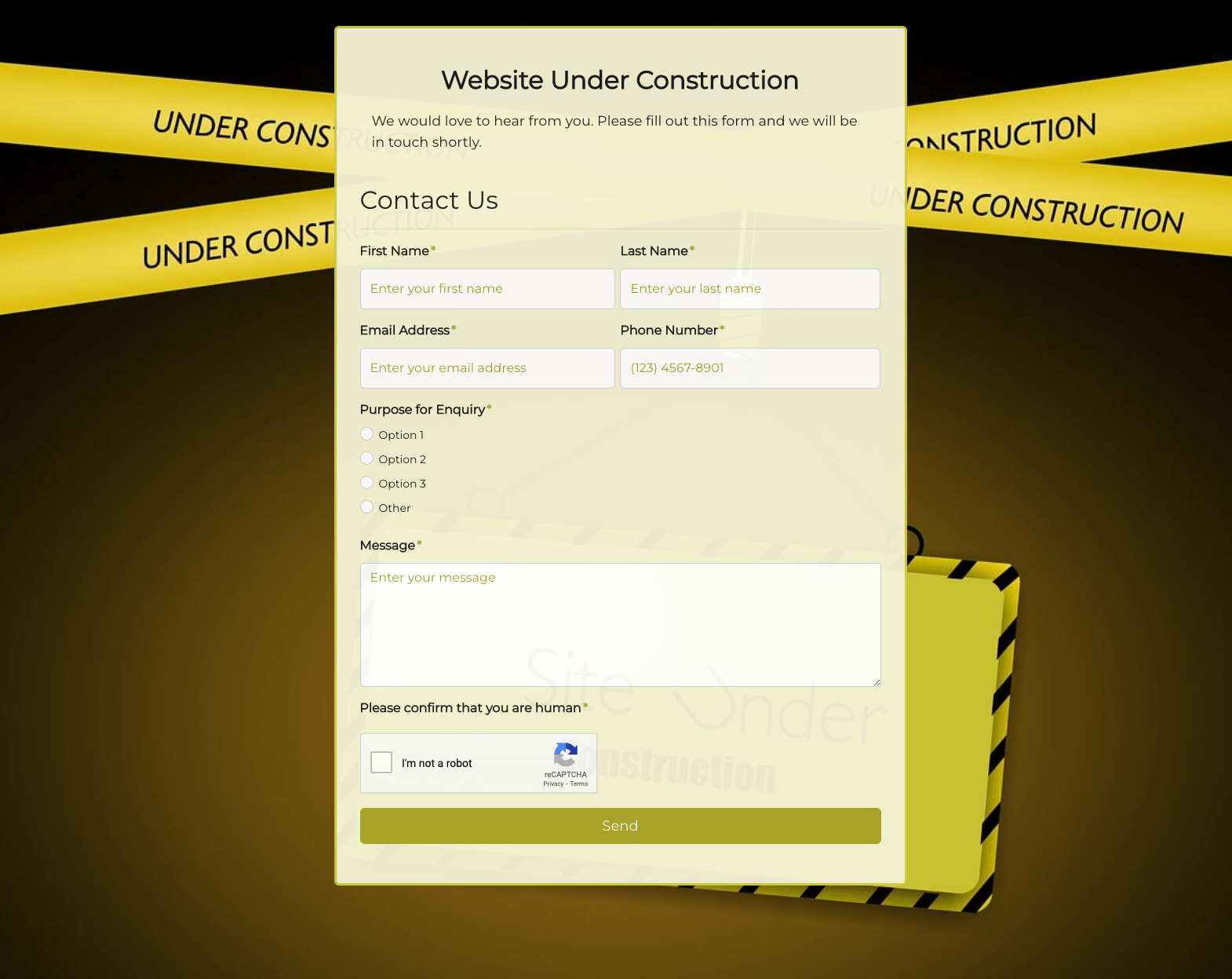 Website Under Construction Form
Website Under Construction Form
 Wedding Photographer Form
Wedding Photographer Form
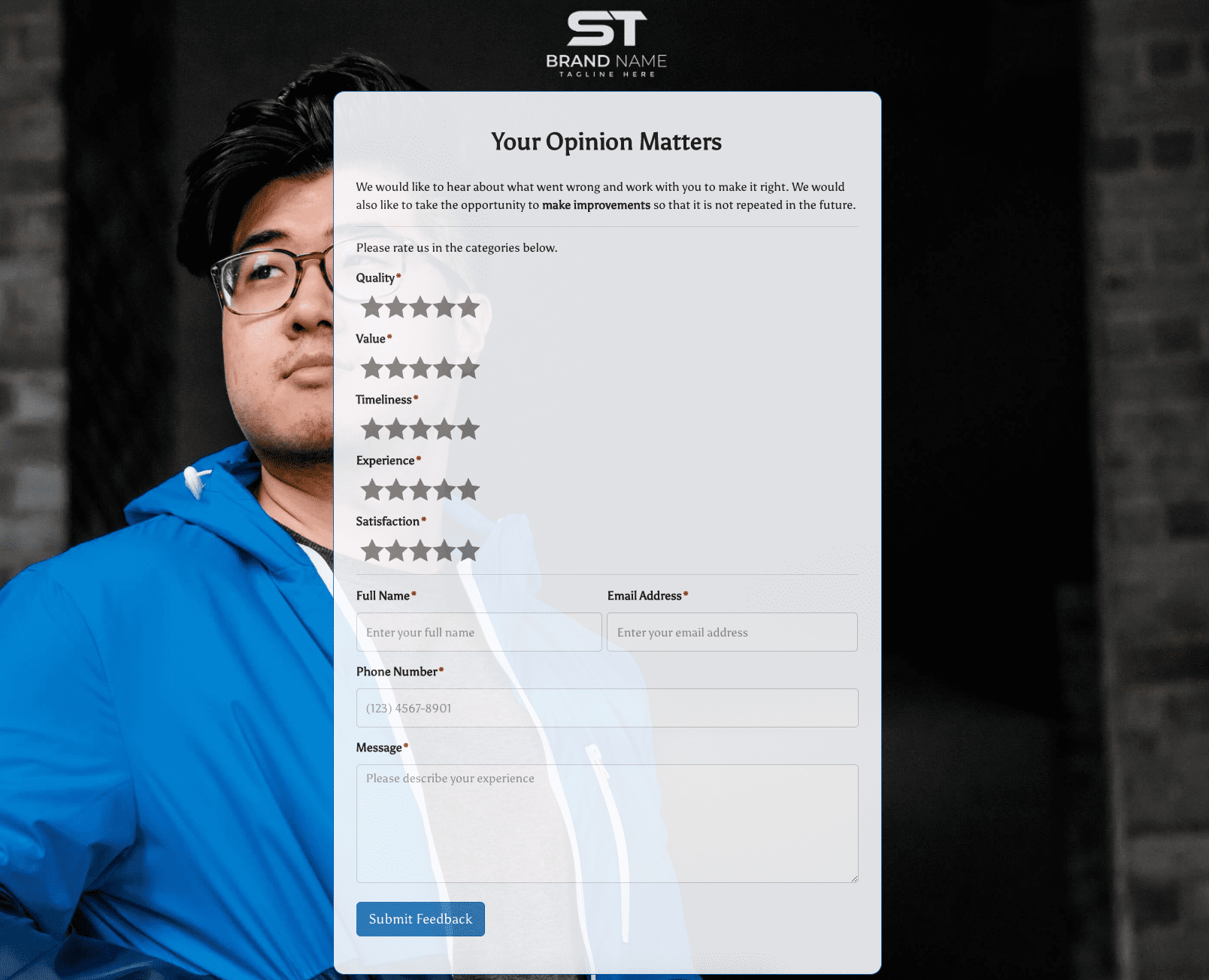 Your Opinion Matters Form
Your Opinion Matters Form























